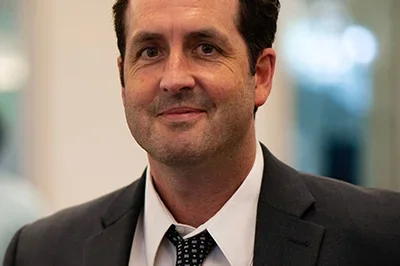Mechanobiology
Can We Cure More Patients By Studying Mechanobiology Forces?

Manish Butte, MD, PhD
Associate Professor, Pediatrics and Microbiology, Immunology & Molecular Genetics
Immune-System Mechanics
A practicing immunologist, Dr. Butte uses advanced investigative techniques and next-generation diagnostic tools to move medical mysteries into the treatable territory.
Dr. Butte runs a unique lab that blends immunology, cellular biophysics, and engineering to study the influence of tissue mechanics on immune system function. By defining the mechanical forces driving disease and immune response, Dr. Butte hopes to change the way we treat and heal a panoply of human disorders.
Medical Mysteries: Why Dr. Butte Studies the Immune System
Dr. Butte investigates the mechanisms of disease on a molecular level, tracking disorders from the mutation of one DNA nucleotide to the subsequent impairment of the immune response.
He isolates the underpinning systemic causes of rare immune diseases, developing treatments for one-of-a-kind patients considered medical mysteries. He is even designing a process that uses humanized mice to make it faster to validate, and therefore treat, rare human genetic diseases.
Every case stimulates Dr. Butte’s heart and intellect. He keeps patients’ pictures—and exomes—pinned to his walls.
A passion to learn how nature—specifically the immune system—works drives Dr. Butte’s explorations in the budding field of mechanobiology.
Using Mechanobiology to Learn How the Immune System Works
Dr. Butte believes mechanobiology, the study of how mechanical forces influence cells and tissues, will contribute to an uncharted understanding of immune responses, including what makes a T cell act.
Using atomic force microscopy, the Butte Lab imaged T cells in motion and found they give antigen-presenting cells forceful "bear hugs" to extract information. Additionally, the lab's observations proved the molecular bear hug critical to information gathering; T cells require both force and contact to activate receptors and access antigen. Read more in T Cell Activation Requires Force Generation, published in the Journal of Cell Biology.
The researchers have been studying how tissue mechanics, specifically a tissue's stiffness or softness, control a T cell's ability to administer "molecular bear hugs" and collect information necessary to make a sound response decision.
The Butte Lab hypothesizes that tissue mechanics influence T cell responses in nearly all diseases, from cancer to autoimmune disorders.
They suggest:
- T cells are over-active in autoimmune issues when the tissue is too soft. Soft tissue encourages T cell communication and attack.
- T cells are under-active in diseases like cancer when the tissue is stiff. Crowded, like a busy subway car, stiff tissue impedes T cell communication and attack.
The Future of Mechanobiology: Manipulating Cells and Tissues
By studying the mechanics of tissue and learning how to modulate it, the Butte Lab hopes to inform fields trying to activate the immune system and fields trying to suppress it.
Recently, the team pinpointed an enzyme—cofilin—that controls cytoskeletal rigidity, a deciding factor in a T cell’s ability to engage with antigen-presenting cells. Read more in Cytoskeletal Adaptivity Regulates T Cell Receptor Signaling, published in Science Signaling.
One project in the Butte Lab aims to turn cofilin on and off, dialing the immune system up or down depending on the patient. This modulation of the mechanical forces driving immune response would help fight any disease and even boost vaccination success.
"Such control would lead to all kinds of implications for cancer, autoimmunity, allergies, transplants, and infections… and because the immune system touches every cell in the body, virtually every disease can be influenced by the immune response,” says Dr. Butte.
Dr. Butte studies universals—the mechanisms driving immune function in all diseases. By understanding these mechanisms, he aims to develop treatments for a gamut of immunological issues. With each mutation, force, or enzyme uncovered, Dr. Butte is sketching an evidence-based blueprint for treating any patient.
“ ”